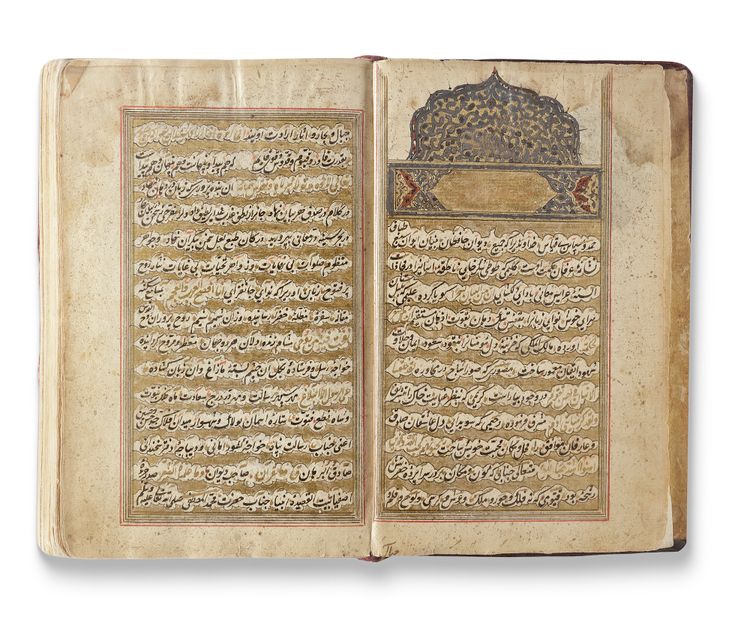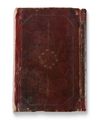Lot 11 KHWAJA SHAMS AL-DIN HAFIZ SHIRAZI (D.1390 AD), DIWAN SAFAVID, PERSIA DATED 1081 AH/1670 AD
Persian poetry manuscript on paper, each folio features 15 lines of elegant black nastaʿlīq script, arranged in two columns separated by double black-ruled gold divisions. Select passages are set within central cartouches. Section titles are rendered in gold nastaʿlīq script, framed by blue floral scrolls. The main text is enclosed within gold frames, ruled in red and black, and includes catchwords throughout.
The first eleven pages are adorned with gold and polychrome illuminated headpieces, each enclosing verses reserved in cloud bands against a gold-sprinkled ground. The colophon is signed and dated 1081 AH (1670–71 AD).
The manuscript is housed in a deep red morocco binding with a fore-edge flap.
10 by 15.5 cm
Catalogue note:
This refined manuscript contains the Divan of Hafiz, the timeless collection of poetry by Khwāja Shams al-Dīn Muhammad Ḥāfiẓ of Shiraz (d. 1390 CE), one of the most beloved and influential poets in the Persian literary canon. The Divan comprises primarily ghazals—lyric odes rich in metaphor and layered meanings—alongside qasidas, rubāʿiyāt, and other poetic forms.
Hafiz's poetry is celebrated for its profound ambiguity and emotional resonance, blending themes of divine love, human passion, mystical longing, and spiritual intoxication. The poet’s voice moves effortlessly between the worldly and the transcendent, often using wine, the beloved, the tavern, and the cupbearer as symbolic vehicles for Sufi spiritual truths. At the same time, his verses reflect a sharp wit and occasional social critique, aimed at hypocrisy and pretense—particularly among the pious.





